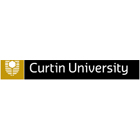Bachelor of Science (Science) – Chemistry
Bachelor of Science (Science) – Chemistry
Chemistry is referred to as the ‘central science’, because it connects other sciences such as physics, biology and geology. It is science at a molecular level, where major advances are occurring in many areas – including medicine, nanotechnology, sensors and environmental chemistry. In this course, you will gain the knowledge…
Categories
COURSE DESCRIPTION
Chemistry is referred to as the ‘central science’, because it connects other sciences such as physics, biology and geology. It is science at a molecular level, where major advances are occurring in many areas – including medicine, nanotechnology, sensors and environmental chemistry. In this course, you will gain the knowledge to become a skilled chemist. Much of your learning will be largely laboratory-based, at Curtin’s Resources and Chemistry Precinct. You’ll study theoretical and practical aspects of chemistry, including synthesis, analysis and spectroscopy. You’ll also learn problem-solving, teamwork and critical analysis skills, which can open opportunities for other careers within science. Within the Chemistry major, you’ll have a choice of three specialisations: Analytical and Forensic Chemistry, Medicinal and Biological Chemistry, Chemistry of Sustainable Development. Careers
• Analytical chemist
• Environmental chemist
• Forensic scientist
• Materials scientist
• Medicinal chemist
• Synthetic chemist.
Industries
• Environment
• Forensics
• Health
• Manufacturing
• Petrochemical engineering.
Further study
• Bachelor of Science (Honours)
• Master of Science (Water Quality and Treatment)
• Master of Teaching
• Master of Philosophy
• Doctor of Philosophy
What you’ll learn
• Have demonstrated knowledge and understanding in chemsitry that is typically at a level that, whilst supported by advanced textbooks, includes some aspects that will be informed by knowledge of the forefront of chemistry, GC1
• Can apply their knowledge and understanding in a manner that indicates a professional approach to chemistry, and have competencies typically demonstrated through devising and sustaining arguments (to both specialist and non-specialist audiences) and solving problems within chemistry, GC2
• Understand the constructs of the scientific method and apply these principles in chemistry using digital technologies, GC3
• Can gather and interpret relevant data within chemistry to inform judgements that include reflection on relevant social, scientific, or ethical issues, including being aware of the diversity of international perspectives associated with chemistry, and how these impact upon the practice of chemistry, GC4
• Understand and appreciate cultural diversity and how it impacts on the practice of chemistry, GC5
• Display a high standard of professional behaviour, including effective time management, both independently and as a team member, GC6
REQUIREMENTS
You’re considered a high school leaver if you: Completed year 12 in Australia or overseas in the past two years, or Completed TAFE or VET studies in the past two years. English language requirements: IELTS (International English Language Testing System) – Listening, Reading, Writing, and Speaking – 6.0; Overall band score 6.0.
EDUCATIONAL INSTITUTION
Curtin University is Western Australia’s largest and most culturally diverse university with Australia’s third largest international student population. Around 60,000 students from more than 130 countries study a Curtin degree, at locations including Perth, Margaret River, Kalgoorlie, Sydney, Malaysia and Singapore. Our cultural diversity adds a rich and valuable dimension to the campus atmosphere, preparing all graduates to live and work effectively in an increasingly global environment. We offer a range of industry-aligned undergraduate and postgraduate courses in business, humanities, health, engineering and related sciences. We also have a long-standing focus on Aboriginal and Torres Strait Islander education and culture, supported by our Centre for Aboriginal Studies.Curtin is widely recognised for its practical research that is focused on solving timely, real-world problems. In recent years our research activity has grown significantly, driving our rapid rise up the international university rankings.As a university that never settles, we will continue to develop existing partnerships and establish new ones in areas relevant to our research and teaching.

